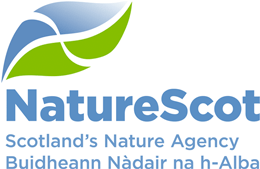02 September, 2016
New app used to track down wildcats
An innovative new website app to help people record sightings of the elusive Scottish wildcat was launched today by Roseanna Cunningham, Cabinet Secretary for Environment, Climate Change and Land Reform.
Scottish Wildcat Action (SWA) – the first official national initiative to help the species – and the Mammal Society are behind the new app.
Sightings can be reported online at www.scottishwildcataction.org or by using the Mammal Tracker app on iphone or Android.
Scottish Wildcat Action is a partnership project uniting experts from more than 20 key organisations. Its steering group comprises Scottish Natural Heritage; Forestry Commission Scotland; Cairngorms National Park Authority; National Museums Scotland; Royal Zoological Society of Scotland; Scottish Gamekeepers Association; Scottish Wildlife Trust; National Trust for Scotland; The Royal (Dick) School of Veterinary Studies - Edinburgh University
Scottish wildcats are one of the UK’s most endangered species. And the wildcat work is one of the key projects in the Scottish Biodiversity Strategy which aims to support the Scottish Government strategic objectives for a wealthier, fairer, healthier, smarter, greener, safer and stronger country.
App users can report sightings of wildcats, hybrids and feral cats and, once verified, a sighting will be displayed on a map of Scotland. Officials from SWA will then decide on a course of action.
Cabinet Secretary for Environment, Climate Change and Land Reform, Ms Cunningham said: “I know how important our native wildcats are to the people of Scotland. During my visit to Highland Wildlife Park last week I saw the work that is taking place to save the Scottish wildcat from extinction.
“I am delighted that through the use of this new app, communities now have an opportunity to get involved directly with this important conservation initiative and use their knowledge to help conserve this iconic species.
“The information provided will ensure we target conservation work more effectively, and help protect our remaining native cat populations. I am aware of all the hard work that has gone on, and is going on, by Scottish Wildcat Action, and I am heartened at recent successes in terms of the number of Scottish wildcats found by their staff.”
The Scottish wildcat is related to European wildcats but has lived in isolation since the English Channel formed after the last ice age, creating a distinctive and unique Scottish species.
In contrast, thousands of feral or ‘stray’ cats living in the wild are descended from cats domesticated from the African wildcat living in the Near East. Domestic cats, and particularly ferals, can threaten the survival of wildcats by transmitting disease. They also dilute the gene pool as they breed with wildcats.
SNH employee Roo Campbell, project manager for Scottish Wildcat Action, said: “This new function on our website is a great way to show where there have been reliable sightings of Scottish wildcats.
“The public can help by reporting sightings of any cat seen living in the wild, whether it’s a wildcat, a feral cat or something in between. It is a great way to take action to save an endangered species. Soon we will also be able to add records from our camera traps too.
“I am delighted that the new app has been launched by the Cabinet Secretary today and I am sure it has a large part to play as we unravel the true picture of this enigmatic species.”
Derek Crawley from the Mammal Society said: “The free Mammal Tracker App was originally set up for recording mammals of the south east of England. We are therefore delighted to be upgrading the App so it can now contribute to the conservation and monitoring of mammals right across the UK.”
Scottish Wildcat Action is the first official national conservation plan with a vision to restore viable populations of Scottish wildcats north of the Highland fault line. It is committed to working with local people in wildcat priority areas to reduce the risks of hybridisation, disease and accidental persecution.
The Mammal Society promotes evidence-based conservation. It delivers training courses to professionals and members of the public (www.mammal.org.uk/training); produces good practice conservation and mitigation handbooks; and undertakes scientific research to improve conservation. It is currently conducting the official review of the conservation status and population size of British mammals for the English, Scottish and Welsh governments. Its Mammal Atlas, which tracks the change in mammal distribution over the last 20 years, will be published in early 2017.
For further information contact Charlotte Marshall from the Mammal Society at info@themammalsociety.org: 02380010985 or 07891495854
Contact information
- Name
- SNH Media
- snhmedia@snh.gov.uk
NatureScot is Scotland's nature agency. We work to enhance our natural environment in Scotland and inspire everyone to care more about it. Our priority is a nature-rich future for Scotland and an effective response to the climate emergency. For more information, visit our website at www.nature.scot or follow us on X at https://x.com/NatureScot
’S e NatureScot buidheann nàdair na h-Alba. Bidh sinn a’ neartachadh àrainneachd na h-Alba agus a’ brosnachadh dhaoine gu barrachd suim a chur ann an nàdar. Tha e mar phrìomhachas againn gum bi nàdar na h-Alba beairteach agus gun dèilig sinn gu h-èifeachdach le èiginn na gnàth-shìde. Tha an tuilleadh fiosrachaidh aig www.nature.scot no air X aig https://x.com/NatureScot
